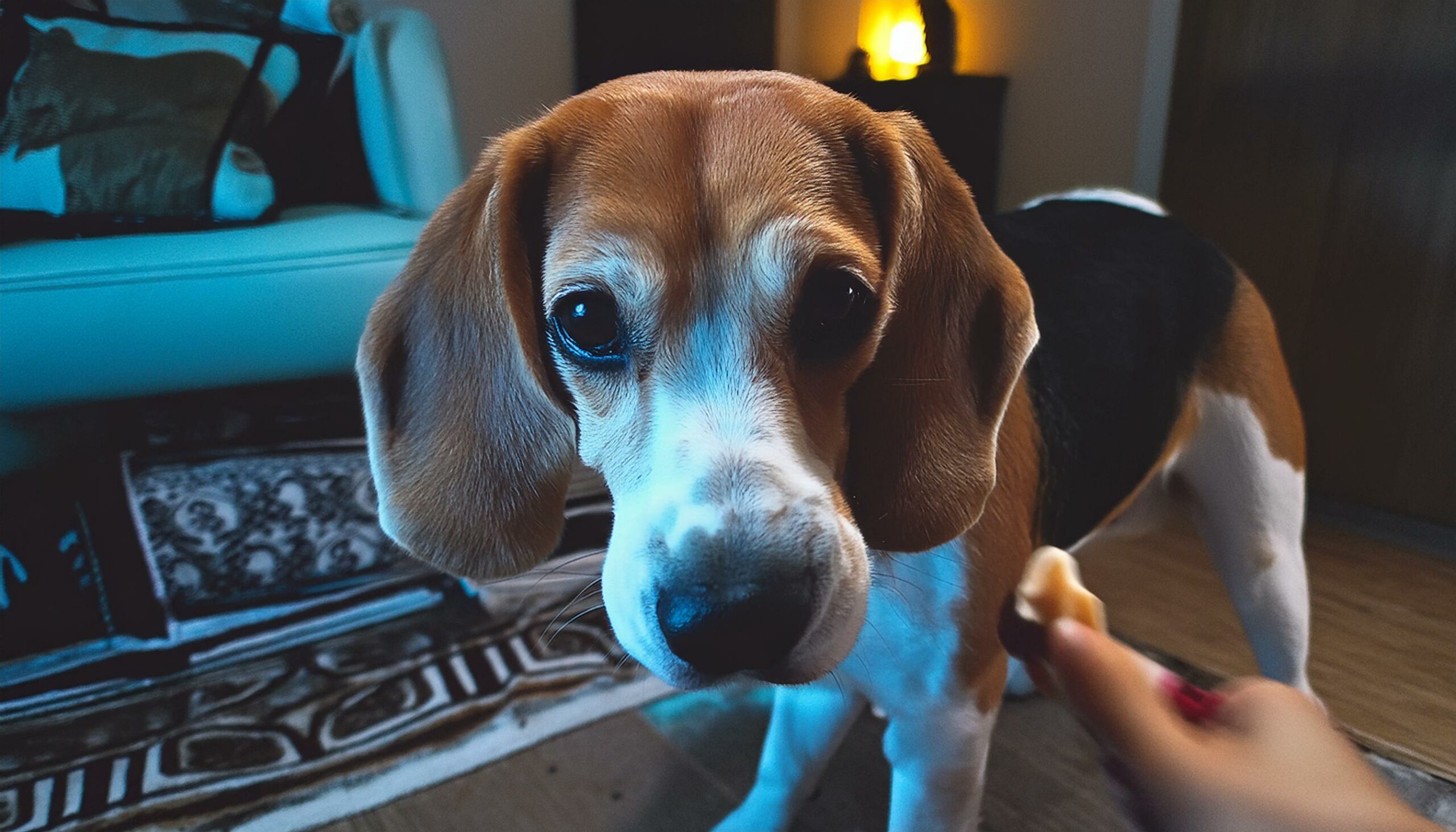Beagles, known for their friendly demeanor and adorable looks, are popular family pets. However, like all dogs, Beagles can experience fear and anxiety. Understanding what scares Beagles and how to help them overcome their fears is essential for their well-being and happiness.
Understanding Beagle Behavior
Beagles are sociable and curious dogs, often described as merry and affectionate. They enjoy exploring their surroundings and interacting with people and other animals. However, despite their outgoing nature, Beagles can be sensitive creatures. Various factors such as genetics, early socialization, and past experiences can influence their fears.
Common Fears in Beagles
1. Loud Noises
Beagles have keen senses, particularly their hearing. Loud noises such as thunderstorms, fireworks, or construction sounds can startle and frighten them. Beagles may become anxious or agitated during noisy events, seeking refuge in quiet areas of the home.
2. Strangers
While Beagles are generally friendly and sociable, they may exhibit fear or apprehension around unfamiliar people. Lack of early socialization or negative experiences with strangers can contribute to this fear. Beagles may bark, retreat, or display defensive behaviors when encountering unfamiliar individuals.
3. Other Animals
Beagles usually get along well with other dogs and pets. However, they may feel intimidated or fearful in the presence of larger or more assertive animals. Unfamiliar scents, body language, or previous negative interactions with other animals can trigger fear responses in Beagles.
4. Separation Anxiety
Beagles are pack animals that thrive on companionship. Being left alone for extended periods can lead to separation anxiety in Beagles. Symptoms of separation anxiety may include excessive barking, destructive behavior, and house soiling. Beagles may become distressed when separated from their owners, fearing abandonment or isolation.
5. Environmental Changes
Beagles thrive on routine and familiarity. Any sudden changes in their environment, such as moving to a new home or experiencing disruptions in their daily routine, can cause stress and anxiety. Beagles may exhibit fear-related behaviors in response to unfamiliar surroundings or changes in their usual schedule.
Symptoms of Fear in Beagles

When Beagles are scared, they may display various physical and behavioral signs:
- Trembling or shaking
- Excessive panting
- Pacing or restlessness
- Dilated pupils
- Excessive barking or whining
- Hiding or seeking comfort from their owners
- Decreased appetite or refusal to eat
Recognizing these signs is crucial for identifying and addressing their fears effectively.
Dealing with Beagle Fear
Creating a Safe Environment
Providing a safe and secure environment is essential for helping Beagles feel more relaxed and secure. This includes:
- Designating a quiet and comfortable space for your Beagle to retreat to during stressful situations.
- Avoiding exposure to triggering stimuli whenever possible (e.g., keeping them indoors during thunderstorms or fireworks displays).
- Providing comforting items such as blankets, toys, or clothing with your scent to help alleviate anxiety.
Gradual Exposure to Fears
Gradual exposure to the things that scare Beagles can help desensitize them over time. This process, known as systematic desensitization, involves:
- Introducing the fear-inducing stimulus in a controlled and gradual manner, starting with a low intensity or distance.
- Rewarding calm and relaxed behavior with treats, praise, or play.
- Gradually increasing the intensity or duration of exposure as your Beagle becomes more comfortable and confident.
Positive Reinforcement Training
Positive reinforcement training is a powerful tool for modifying behavior and building confidence in fearful Beagles. This approach involves:
- Rewarding desired behaviors (e.g., remaining calm in the presence of a feared stimulus) with treats, praise, or affection.
- Using a calm and reassuring tone of voice to communicate with your Beagle.
- Avoiding punishment or negative reinforcement, as this can exacerbate fear and anxiety.
Seeking Professional Help
In severe cases of fear or anxiety, it’s essential to seek professional help from a veterinarian or certified animal behaviorist. These professionals can provide:
- Expert evaluation of your Beagle’s behavior and temperament.
- Personalized guidance and treatment plans tailored to your Beagle’s specific needs.
- Recommendations for medication or supplements to alleviate anxiety symptoms, if necessary.
Conclusion
Understanding what scares Beagles and how to help them overcome their fears is essential for promoting their well-being and happiness. By creating a safe environment, gradually exposing them to their fears, using positive reinforcement training, and seeking professional help when needed, you can help your Beagle feel more confident and secure.
FAQs (Frequently Asked Questions)
1. Are Beagles naturally fearful dogs?
- While Beagles are generally friendly and outgoing, they can be sensitive to certain situations and stimuli, leading to fear or anxiety.
2. How do I know if my Beagle is scared?
- Beagles may exhibit physical signs such as trembling or shaking, as well as behavioral cues like excessive barking or hiding when they are scared.
3. Can Beagle fear be overcome with training?
- Yes, with patience, consistency, and positive reinforcement training, many Beagles can learn to overcome their fears and become more confident.
4. What should I do if my Beagle’s fear is severe?
- If your Beagle’s fear is severe or significantly impacting their quality of life, it’s essential to seek guidance from a veterinarian or animal behaviorist for personalized support.
5. How can I help my Beagle feel more secure during thunderstorms?
- Providing a safe, comfortable space for your Beagle to retreat to, using calming techniques such as music or pheromone diffusers, and engaging in soothing activities can help alleviate their anxiety during thunderstorms.
